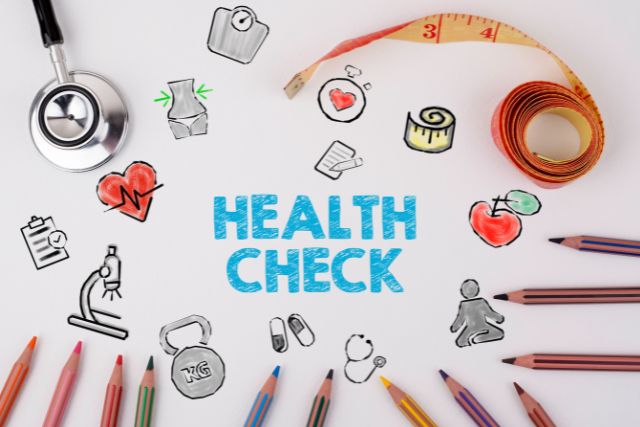Recent Posts
-

- Diabetes-Friendly Nutrition: Smart... 08.12.2024
-

- Nutrition for Chronic... 08.12.2024
-

- Anti-Inflammatory Diet: Food... 08.12.2024
-

- Low-Sodium and Heart-Healthy:... 08.12.2024
-

- Plant-Based Diets for... 08.12.2024
What is the recommended Frequency of Checkups for Adults?

Do you remember the last health check-up you had? Not since this may be 10 or 20 years ago from now. But as adults, our bodies and our health change; there may be certain sicknesses that we experience as we grow up, and there are conditions that are not visible in our eyes. That’s why it’s essential to have regular check-ups to be updated on the state of our body.
But the question is, how frequently do adults need to be checked up?
If you are concerned about your health and wellness, your doctor should be the priority when it comes to regular checkups. Regular checkups are based on age, risk factors, and health status. Having an appointment with your doctor each year will help you ensure that your health is in good shape and that you don’t overlook anything.
If you choose a primary care physician who can handle your family's medical needs, you and your entire family will be taken care of and receive a clean bill of health every year.
According to general recommendations, you should see your doctor for routine checkups at the following times:
- For healthy individuals under 50 years of age, you should get a checkup every three years
- Upon reaching 50 years old, once a year
- Chronic diseases, such as diabetes or COPD, should be treated more frequently, regardless of age.
An adult annual checkup should include a review of and update of: For men and women, an adult yearly checkup should consist of a review and update of:
- your medical history
- your family history, if necessary
- your medication list and allergies
- your vaccination and screening test history
Men and women are typically screened for:
- high blood pressure
- obesity, based on your body mass index
- tobacco use
- alcohol and drug misuse
- depression
- HIV screening for adults ages 15 to 65 and anyone at high risk
- hepatitis C for anyone born between 1945 and 1965
- type 2 diabetes for anyone with risk factors or a family history
- colorectal cancer starting at age 50
- lung cancer with a yearly low-dose CT scan for adults ages 55 to 80 who currently smoke or have smoked within the last 15 years
You should regularly see a gynecologist if you’re a woman. You should schedule a pap smear and wellness check appointment each year. You can get tested for sexually transmitted diseases and get answers to questions about gynecological issues, whether you’re planning to start a family or want to maintain your reproductive health.
Keeping your vision up to date will help you avoid ocular diseases and let you see clearly. Make sure you visit the optometrist regularly, as well. The optometrist will also test for glaucoma and give you a new prescription for your glasses or contacts. Keep in touch with your eye doctor if you wear glasses or contacts because you'll need a new prescription before ordering new ones.
You must take good care of your skin since it is the largest organ in your body. A dermatologist can help you clear up and prevent acne. With their assistance, you can use the right products and fix lifestyle issues contributing to acne.
Taking care of your oral health is essential. This is the first step in your body's digestion, so your health will suffer if you have cavities, gum disease, or other problems. You should see your dentist twice a year for a checkup and cleaning and a general wellness check. Your dentist will test your teeth for cavities and offer fluoride treatments during these visits.
Maintaining mental health is becoming increasingly important, as is the case with physical or dental health. As a result, more people are visiting a therapist regularly, just like they do with a doctor. You can do the same to keep your mental health intact and to ensure that you are healthily processing your thoughts and feelings. When you find a therapist that you like, visit them every week. People say these appointments become the highlight of their week
because they take only a half-hour to an hour.
Disclaimer: The information contained in this article is for educational and informational purposes only and is not intended as medical advice. The content is not intended to be a substitute for professional medical advice, diagnosis, or treatment. Always seek the advice of your physician or other qualified health provider with any questions you may have regarding a medical condition. Never disregard professional medical advice or delay in seeking it because of something you have read on this website.
Sources:
- How Often Should You Get Routine Checkups at the Doctor? (healthline.com)
- How Often Should Adults Get a Physical: Frequency and and Appointment Types Explained: LaSante Health Center: Multi-Specialty Health Clinic





